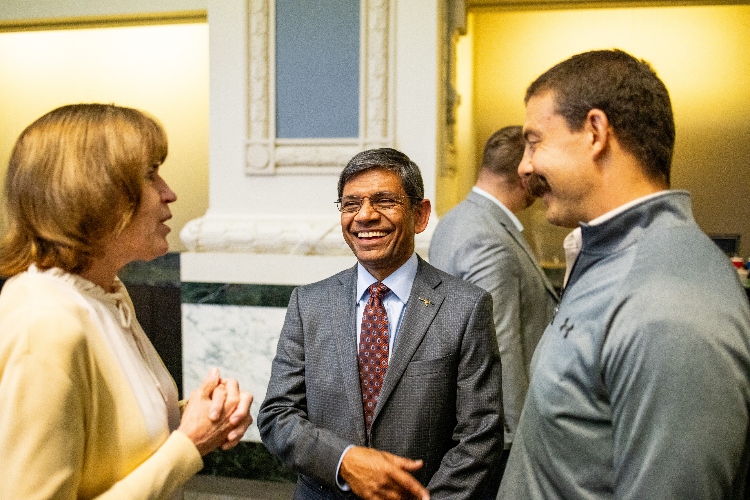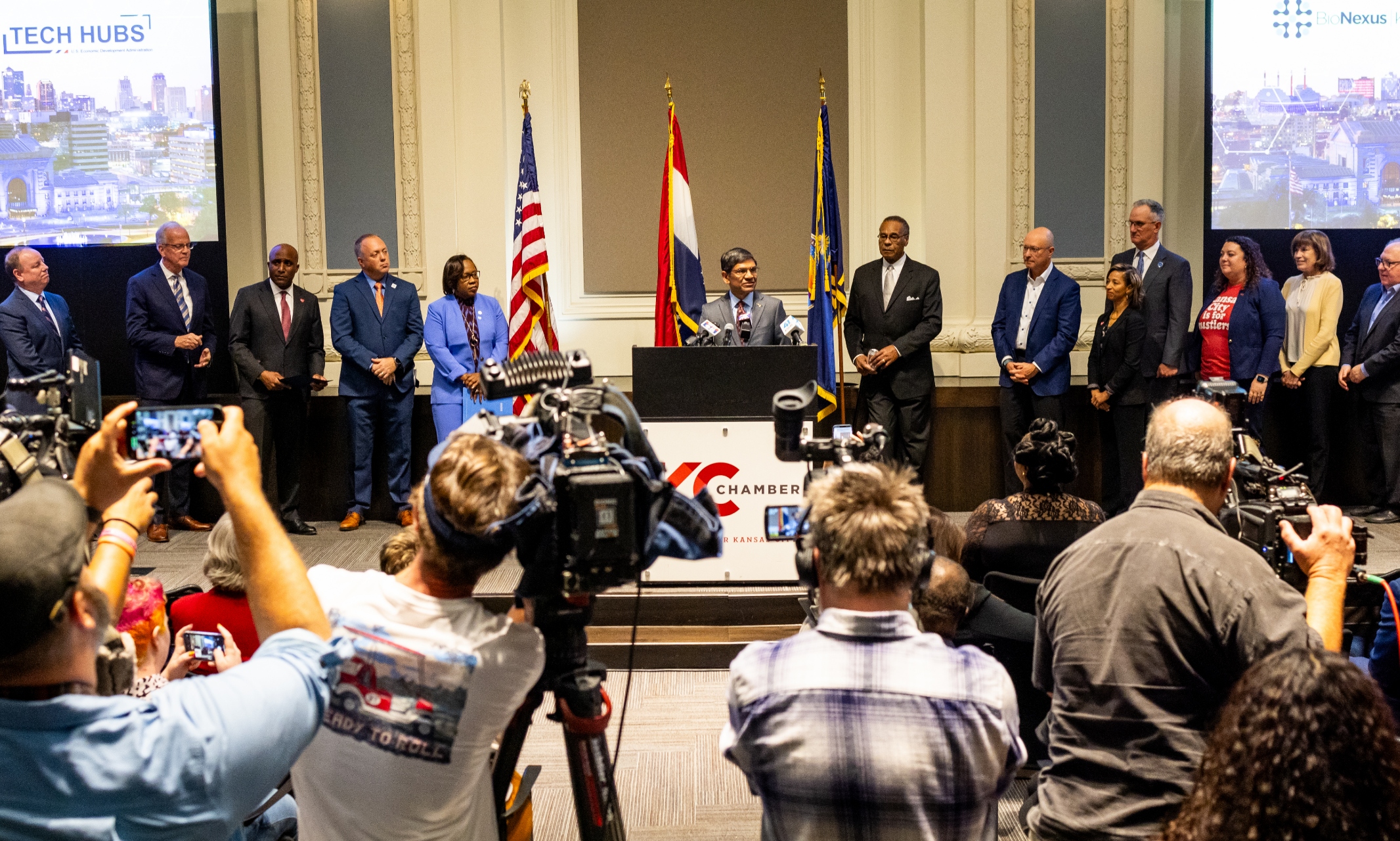The U.S. Economic Development Administration has named the KC region and Missouri “Tech Hubs” as part of a historic investment to strengthen the U.S. economy and national security - and the University of Missouri-Kansas City played a significant role in this recognition.
UMKC Chancellor Mauli Agrawal, along with national and other local leaders, spoke at an announcement event at the Greater Kansas City of Commerce boardroom at Union Station.
"The new Tech Hubs designation provides great scope for innovation in Kansas City – and I can envision all the groundbreaking advancements to come as our UMKC students, faculty and staff work in collaboration with the many fantastic organizations in the greater Kansas City area," Agrawal said. "We at UMKC could not be more excited."

The regional proposal, Kansas City Inclusive Biologics and Biomanufacturing Tech Hub (KC BioHub), led by BioNexus KC, of which the university is a member, UMKC and more than 60 partner organizations, will ramp up life-saving vaccine production and other preventative technologies to leverage regional assets and the existing ecosystem to become a global leader in biomanufacturing and life sciences. KC BioHub can now apply for phase 2 funding of up to $75 million.
"The Tech Hubs designation is not just a title; it's a reflection of the dedication and hard work of the entire Kansas City community," said Maria Meyers, executive director of the UMKC Innovation Center. "It highlights our shared commitment to innovation and our ability to harness our collective potential. The UMKC Innovation Center is excited to play a pivotal role in this journey, and we can't wait to witness the advancements that will emerge from this exciting collaboration."
Agrawal said the Tech Hubs designation and the opportunity that comes with it, is a natural next step for the community, and one UMKC has been preparing for.
In 2022, UMKC received a $12.97 million grant from the Kauffman Foundation to increase entrepreneurship programming and technology commercialization. This grant expanded existing programs and allowed for the creation of new ones, with the goal of reducing barriers to entrepreneurship and technology innovation and commercialization.
In 2023, UMKC unveiled the next steps in its planned expansion of the UMKC Health Sciences District with the Healthcare Delivery and Innovation Building, a physical space designed to fuel innovation. That $120 million building will house key assets for research, technology and engineering. One of these assets is the Data Science Analytics and Innovation Center, which is focused on creating new advances in data sciences to transform the way we personalize healthcare and contribute to new discoveries.

Across Missouri, UMKC also contributed to another Tech Hub. The Critical Minerals and Materials for Advanced Energy Tech Hub, led by the University of Missouri System, aims to position south-central Missouri as a global leader in critical minerals processing to provide the materials needed to support battery technology.
This Tech Hub will build on the region’s mineral-rich geography, expertise in hydrometallurgical refining and existing assets to increase processing capacity to convert minerals into materials necessary for advanced energy and critical goods, including lithium-ion and primary-lead-acid batteries. In doing so, the Tech Hub seeks to meet the demand of U.S. advanced energy manufacturers and reduce dependence on foreign critical minerals while creating thousands of good-paying jobs.
"The region possesses the natural resources, transportation infrastructure, workforce, workforce training, expertise and incumbent corporations necessary to build a thriving critical materials circular economy; the same is true of the foundational elements for biologics manufacturing," said Anthony Caruso, associate vice chancellor for research at UMKC. "In both cases, the impact is directed to the taxpayer and U.S. national and economic security."
Tech Hubs was passed with the CHIPS and Science Act of 2022 and has authorized $10 billion for the program over five years. The goal of the federal program is to give an economic push to communities like the KC region. It is expected to drive new technologies to provide the U.S. with a competitive edge against other countries, driving economic growth and training for tech workers.
The KC region and Missouri were two of the 31 Tech Hubs chosen from more than 370 applications.
In 2025, the U.S. Department of Commerce’s Economic Development Administration (EDA) announced that it plans to award an additional $29 million to The Critical Minerals and Materials for Advanced Energy Tech Hub as part of a new round of funding from Congress.

